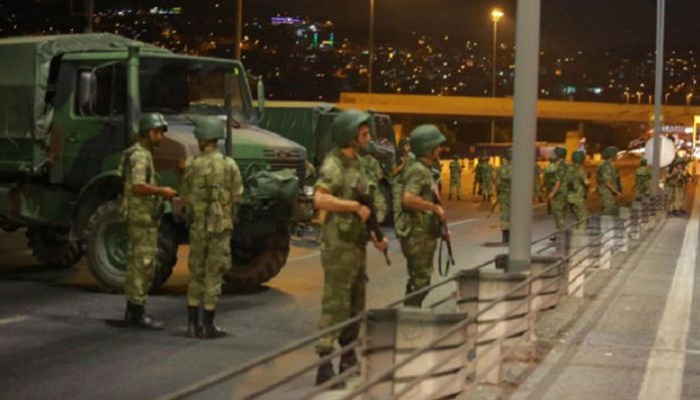Thousands of people who have been removed from their posts or jailed during a state of emergency declared in the aftermath of a failed coup in Turkey on July 15, 2016 are awaiting justice on the coup’s third anniversary.
The coup attempt claimed the lives of 249 people and injured a thousand others. Following the abortive putsch, the ruling Justice and Development Party (AKP) government declared a state of emergency that remained in effect for two years, while it launched a massive crackdown on followers of the Gülen movement as it accuses the movement of masterminding the failed coup. The movement strongly denies any involvement.
More than 150,000 people were removed from state jobs while in excess of 30,000 others were jailed and some 600,000 people have been investigated on allegations of terrorism since July 15, 2016.
The AKP government issued many controversial decrees during the state of emergency that continue to affect the lives of many.
A state of emergency commission, established by the AKP in January 2017, to address unfair and unlawful practices during the state of emergency, has attracted widespread criticism for failing to offer a remedy to the purge victims.
According to a recent statement from the commission, it has approved only 6,000 applications out of 126,200 while the rest were rejected. The commission is currently working on 48,300 dossiers from the state of emergency victims.
The commission’s decisions can be challenged in court, but the judicial process takes at least five to six years. The European Court of Human Rights refuses to handle the cases of purge victims from Turkey, telling them to first exhaust domestic remedies.
Ömer Faruk Gergerlioğlu, a rights activist and a deputy from the Kurdish Peoples’ Democratic Party (HDP) who frequently brings the problems of purge victims to public attention accuses the AKP government of consciously prolonging the victimization of the purge victims. He says it could take as many as 15 years for purge victims to seek their rights at the European Court of Human rights due to the slow functioning of the Turkish judiciary.
“People not only lost their jobs, they lost their basic rights such as access to education and healthcare and freedom of movement along with their families. The state of emergency commission does not know what to do and when,” he said.
Purge victims also have had their passports cancelled, so they cannot travel abroad, if they don’t resort to unlawful means, to start a new life. Many purge victims say it has become impossible for them to be employed even by small businesses because business owners fear they may get in trouble if they employ a purge victim.



